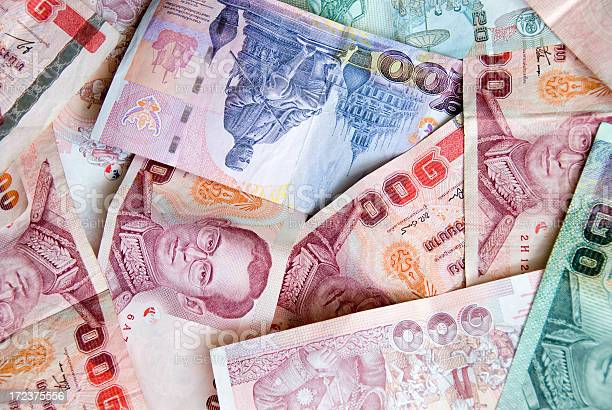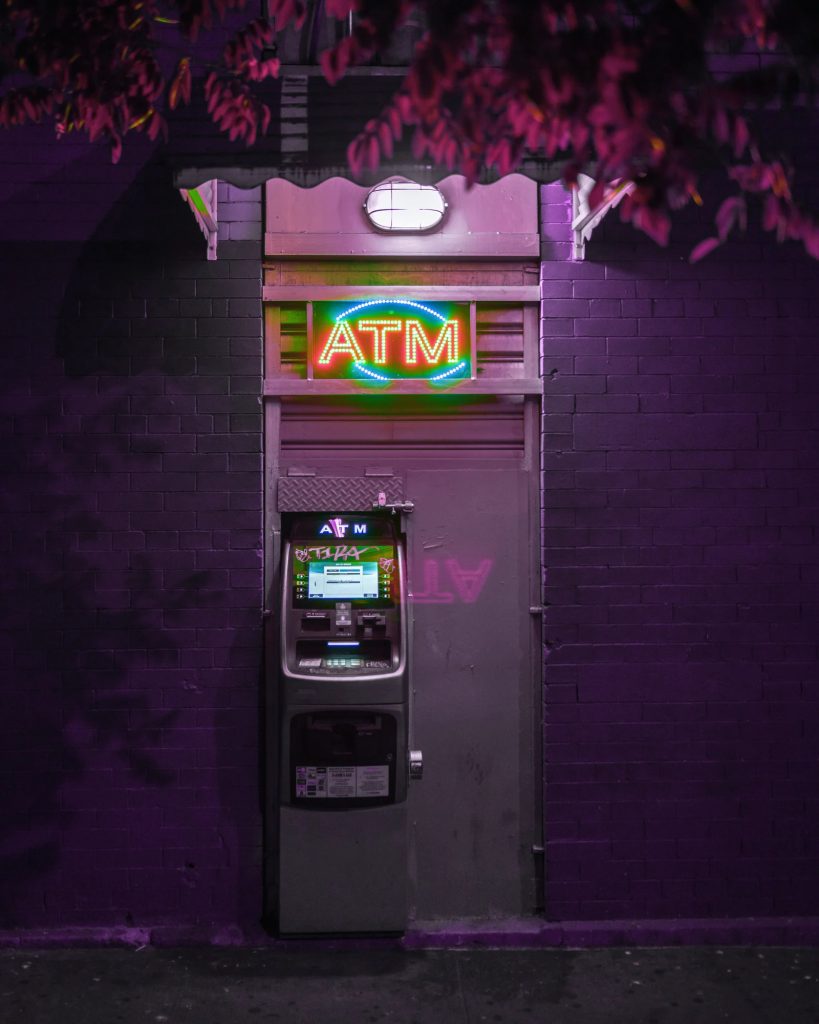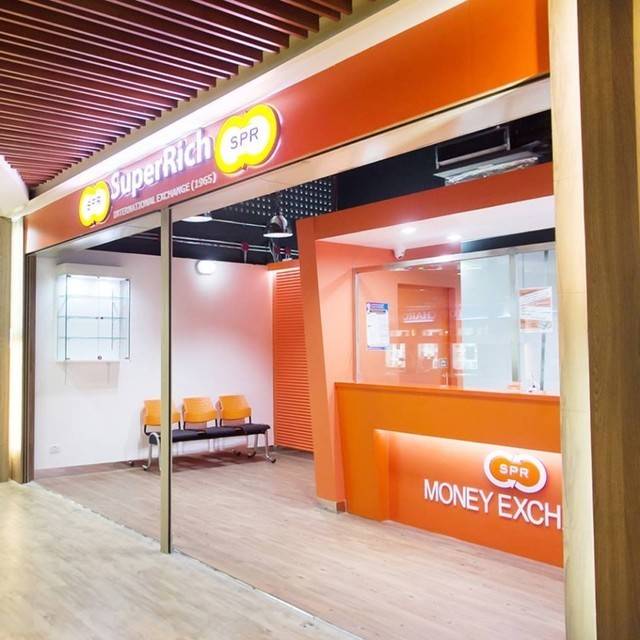Last updated on November 22nd, 2023 at 01:59 pm
Would you like to know how to get the Best Exchange Rates in Thailand? Welcome to our comprehensive guide on getting the best currency exchange rates in Thailand while avoiding pesky ATM fees! As you plan your exciting journey through the Land of Smiles, one crucial aspect to consider is how to maximize your money’s value during your stay. In this blog, we’ll reveal the secrets to securing the best exchange rates, offer tips to steer clear of foreign transaction fees and ATM charges, and recommend trusted currency exchange services. With our insights, you can travel with confidence and experience unbeatable savings!
Thailand Currency Exchange Guide
Thai Money Currency is called the Baht
The Thai Baht (THB) is the currency of Thailand. The symbol for Thai Baht can be written as ฿. As of this writing, the Thai Baht Exchange Rate is $1 USD to ฿34 Baht. For the best money conversion rates, please refer to XE.com. Over the past decade, rates have fluctuated as low as 29 to as high as 36 in exchange for the USD.

Thai bank notes have images of the past and present Thai kings. Please respect notes and anything doing with the king, Thai people take this very seriously and you could be fined or worse if you are caught disrespecting the Royal Family. This Includes stepping on notes or coins.
Thai Baht notes come in the following denominations: 20, 50, 100, 500, 1000. Also coins called satang are used and are available in 1, 2, 5, 10, 25, 50. Coins are useful for metro tickets, used in tipping at restaurants, or leaving in your room for the housekeeping staff.
Understanding the Best Exchange Rates in Thailand
Before delving into the tactics, let’s explore the currency exchange landscape in Thailand. Gain insights into the Best Thailand Money Conversion options available, including banks, local exchanges, and airport kiosks. Understanding these avenues will empower you to make informed decisions for the Best Exchange Rates in Thailand.
1. Research Exchange Rates: Before your trip, research the current exchange rates and compare different options to find the most favorable rates. Online platforms and financial websites can provide real-time exchange rate information.
2. Use ATMs: ATMs usually offer competitive exchange rates and are widely available in most tourist destinations. Choose ATMs affiliated with major banks to minimize additional fees.
3. Notify Your Bank: Inform your bank of your travel plans to avoid any unexpected card blocks while using ATMs abroad.
4. Prepaid Travel Cards: Consider using prepaid travel cards, which allow you to lock in favorable exchange rates before your trip and avoid additional fees.
5. Local Banks and Money Exchanges: If you prefer cash, opt for reputable local banks or money exchange outlets in the city. They often offer better rates and lower fees than airport currency exchange booths.
Current Currency Exchange Rates for Thai Baht
Live Best Money Conversion Exchange Rates for English speaking countries.
Currency data courtesy coinmill.com
Why to Avoid Airport Currency Exchange Booths: Tips for Smarter Money Exchange
Airport currency exchange booths are notorious for offering unfavorable exchange rates. Due to their location and convenience, they often take advantage of travelers who urgently need local currency. These booths generally offer rates that are significantly lower than those you could get at local banks or reputable money exchange outlets elsewhere in the city.
- Unfavorable Exchange Rates
- High Fees and Commissions
- Safety Concerns
Avoiding Foreign Transaction Fees and ATM Charges

The best Thailand money conversion method is simply withdrawing Thai Baht from any of the major Thai Bank ATMs with a debit card. Thai Banks will charge a 220 Baht fee (Almost $7) for any transaction, plus you will get charged by your US Bank for a foreign transaction. So it could be costing you $10 every time you withdraw cash.
You can stretch your money by finding a U.S. debit card that has no foreign ATM fees.
- If you are from the UK, you can apply for Starling Bank or Monzo Bank account and use their debit card for withdraw foreign currency and get the best Thailand money Conversion.
- Caxton Travel Card -I have not personal tested this International travel card, but they offer no ATM fees and have good reviews on Trust Pilot. Please comment below if you have used this card to get Best Thailand Currency Exchange.
- The best Thailand Currency Exchange card on the market for American travelers is theCharles Schwab Debit Cardthat offers a free checking account and ATM fee reimbursem*nt at the end of each month. This means at the end of each month, Charles Schwab issues you a credit for any ATM fees incurred.
- Citibankhas a 3 locations in Bangkok which you can make withdrawals for free if you have an account. The two popular locations are Near Terminal 21 Mall and inside Central World Mall. Citi does offer unlimited refunds of ATM fees fees if you have aCitigold accounts.
- WhileCapital One 360debit card and Chime do not charge international fees, but you will still have to pay the 220 Baht on the Thai bank side. Capital One 360 does offer free International ATM withdrawals atMoneyPass® and Allpoint® ATMs.
When withdrawing, always choose the optionof conversion in the local currency so your card issuer converts the exchange rate at a competitive market rate. Also if you can locate an AEON ATM, they only charge a 150 baht fee which is cheaper than the other Thai Banks.
In general, I like withdrawing 10,000 baht at a time which is just under $280. This will usually last me a week or two depending on what I am doing. There is a max withdrawal of 20,000 baht – 30,000 baht per day depending on which Thai bank you use. Thailand is more of a cash society… Metro, Street Vendors, Night Markets, Massages, Entry into some attractions, Tipping, Taxis, Bars, etc. For everything else, I always prefer to use a credit card with no foreign transaction fees to earn travel points.
Best Thailand Money Conversion Withdrawing Cash Inside Thai Banks
Opting to withdraw cash inside Thai banks presents a host of benefits that cater to our financial convenience. This method allows us to avoid those frustrating ATM fees altogether. Many Thai banks offer no ATM fees for withdrawals made at counters inside their premises, making it an attractive choice for those seeking to optimize their money conversion while saving on additional charges.
Enhanced Security and Peace of Mind: In addition to cost savings, withdrawing cash inside Thai banks provides enhanced security and peace of mind. Unlike standalone ATMs that may be susceptible to skimming or other fraudulent activities, banking withdrawals offer an added layer of protection, protecting our funds from potential risks making this one of the Best Thailand Money Conversion. Present your passport and ATM card at the counter window to receive the best Thailand exchange rates and No ATM withdrawal fee.
SuperRich Thailand: The Best Thailand Currency Exchange

SuperRich Thailand is a private owned company that has thebest money conversion exchange booths with multiple locations in Bangkok. Located inBangkokSuvarnabhumi Airport on Floor B, next to the Airport Rail Link into the city. Another popular location is in the Asoke BTS Station. SuperRich operates as two separate companies, a green or an orange colored logo, the rates are very similar at both. SuperRich boothsdo not charge fees or commissions,and worth looking into if you are staying in Bangkok. For the most up to date Thai Baht Exchange rates you can check on their website. Update: There is now a new kiosk next to SuperRich in the BKK airport that has better rates!
Conclusion: Best Currency Exchange Rate Guide
At the end of a previous trip I was wandering what had happened to all my cash? When going through and adding up my purchases made with cash the numbers were not adding up. I was seemingly off around $100-$200. It was because I was ripped off at the airport money exchange booths. Trading in USD, and then trading in YEN, and exchanging to Baht was not a wise course of action. When converting money, try to limit the amount of times that you exchange.The only time you should be using an airport currency exchange booths is when your exiting the country and want to trade out the local bank notes for your home currency.
.
Is it better to exchange money at the airport or in the city?
Exchanging money at the airport may be convenient, but rates can be less favorable. It’s often better to exchange money in the city at reputable exchange offices or banks for the Best Exchange Rates in Thailand.
Should I use cash or credit cards in Thailand?
It’s best to have a mix of both. Credit cards are widely accepted in cities and major establishments, but having cash is useful for smaller businesses and local markets.
Can I exchange leftover Thai baht back to my home currency before leaving Thailand?
Yes, many banks and currency exchange offices allow you to convert your leftover Thai baht back to your home currency. Keep your exchange receipts for easy transactions.
What are the common scams to watch out for when exchanging money in Thailand?
Be cautious of unauthorized money exchange services, as they may offer unfavorable rates or engage in scams. Stick to reputable banks and exchange offices.